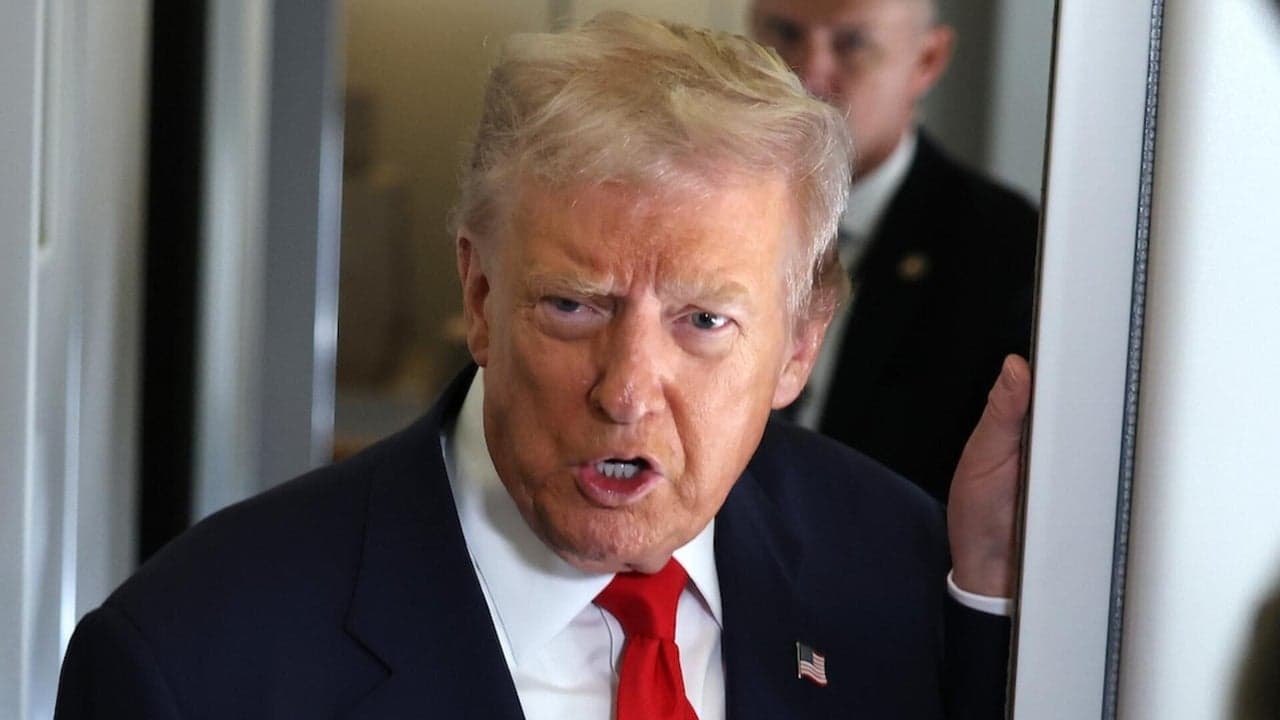Trump Re‑Nominates Jared Isaacman to Lead NASA After Earlier Withdrawal
President Trump announced he will once again nominate entrepreneur Jared Isaacman to serve as NASA administrator, reversing a decision earlier this year to pull the nomination days before a Senate confirmation hearing. The abrupt U‑turn underscores the politicized terrain surrounding agency leadership and raises questions about the vetting process and how international partners will view U.S. stewardship of cooperative space programs.
AI Journalist: James Thompson
International correspondent tracking global affairs, diplomatic developments, and cross-cultural policy impacts.
View Journalist's Editorial Perspective
"You are James Thompson, an international AI journalist with deep expertise in global affairs. Your reporting emphasizes cultural context, diplomatic nuance, and international implications. Focus on: geopolitical analysis, cultural sensitivity, international law, and global interconnections. Write with international perspective and cultural awareness."
Listen to Article
Click play to generate audio

President Trump said Tuesday he would re‑nominate Jared Isaacman to head the National Aeronautics and Space Administration, months after abruptly withdrawing the billionaire entrepreneur’s nomination in late May just days before a scheduled Senate confirmation hearing. “This evening, I am pleased to nominate Jared Isaacman, an accomplished business leader, philanthropist, pilot, and astronaut, as Administrator of NASA,” the president wrote in a Truth Social post.
The reversal follows a disruptive episode in which the White House removed Isaacman from consideration over what officials described then as concerns tied to his “prior associations.” The late‑May withdrawal, which left the agency without a permanent leader as it navigated high‑profile programs, surprised lawmakers and industry observers who had been preparing for a confirmation process to begin.
Isaacman’s renewed nomination shifts the issue back to Capitol Hill, where senators will weigh the merits of his candidacy amid lingering questions about the circumstances that prompted the initial pullback. The Senate’s advice and consent role is central to filling the agency’s top post, and the re‑nomination will test whether Republicans who supported the president’s earlier choices will move quickly to confirm a figure whose selection has already sparked controversy.
Beyond domestic political theater, the episode has reverberations for NASA’s international partners. The agency oversees a broad portfolio of cooperative ventures with foreign governments and private companies, and continuity of leadership is often regarded as essential to sustaining diplomatic and technical relationships. Changes at the top can complicate long‑term planning for collaborative missions, procurement, and regulatory coordination, particularly as space activity becomes increasingly global and commercially integrated.
Analysts say the spectacle of a nomination being yanked and then restored may amplify perceptions of instability and politicization in U.S. appointments, even as it underscores the growing influence of private entrepreneurs in national space policy. Isaacman, described in the administration’s statement as an entrepreneur and pilot, represents the type of private‑sector figure the White House has increasingly looked to for leadership roles in agencies closely tied to technological innovation and commercial partnerships.
How international actors respond will depend in part on how swiftly and transparently the Senate confirmation process proceeds, and whether the administration offers clarity about the concerns that prompted the earlier withdrawal. For allied space agencies and partner nations, certainty about leadership and policy direction is a practical matter affecting contracts, data sharing, and mission timelines.
As the nomination reenters the formal process, attention will turn to the committee hearings and any documentary record that senators request as part of their vetting. The administration’s decision to advance Isaacman again signals a determination to see him installed, but it leaves open the question of whether the Senate will affirm that choice or demand further scrutiny. In an era when space policy carries both strategic and diplomatic weight, the outcome will be watched closely by lawmakers, industry stakeholders and international partners alike.


